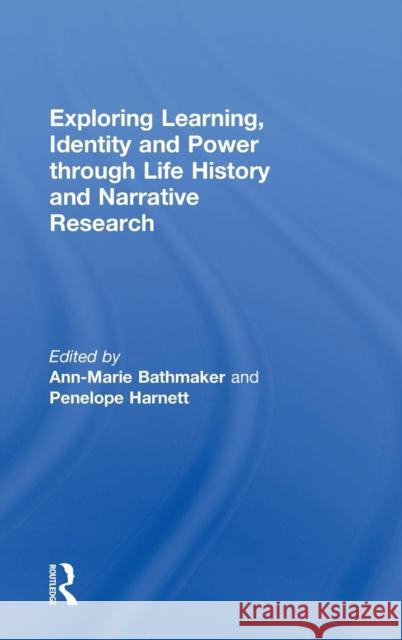Exploring Learning, Identity and Power Through Life History and Narrative Research » książka
Exploring Learning, Identity and Power Through Life History and Narrative Research
ISBN-13: 9780415496421 / Angielski / Twarda / 2010 / 190 str.
Exploring Learning, Identity and Power Through Life History and Narrative Research
ISBN-13: 9780415496421 / Angielski / Twarda / 2010 / 190 str.
(netto: 720,05 VAT: 5%)
Najniższa cena z 30 dni: 654,86
ok. 16-18 dni roboczych.
Darmowa dostawa!
What stories can we tell of ourselves and others and why should they be of interest to others? Exploring Learning, Identity and Power through Life History and Narrative Research responds to these questions with examples from diverse educational and social contexts. The book brings together a collection of writing by different authors who use a narrative/life history approach to explore the experiences of a wide range of people, including teachers, nurses, young people and adults, reflecting on learning and education at significant moments in their lives. In addition, each chapter provides an account by the author of the process of constructing research narratives, and the second chapter of the book focuses specifically on ethical issues in life history and narrative research. This book:
- provides vivid examples of a narrative/life history approach to research
- uses narrative/life history to explore identity, power and social justice
- offers an effective model for practice.
This book brings together a collection of writing about learning, power and identity. Each of the main chapters uses a narrative/life history approach to explore the experiences of a wide range of different people, including teachers, nurses, young children, library workers, adults who attended secondary modern schools in the post-war period, and others. In addition, the book provides a critical overview of contemporary life history/narrative research, and an account of the process of constructing research narratives.
This book will:
- provide vivid examples of a narrative/life history approach to research in different educational and learning contexts
- use this approach to explore identity, power and social justice in education and learning
- demonstrate inter-connections between research and the construction of research, which offer a model for practice for other practitioner research groups.
The book makes a timely contribution to the growing interest in undertaking narrative and life history research. This is particularly relevant as there is now a continuing expansion of practitioner research, linked to an emphasis on research-based professions in education, health, and social service occupations. There are now requirements for continuing professional development by such professionals, which is reflected in an expansion of professional doctorate programmes as well as Masters and general CPD courses. This book will speak directly to such an audience as it provides examples for students of how professionals have used narrative research to investigate their particular research questions. It addresses key issues of social justice and power played out within different contexts, and discusses the ethics of narrative research directly.











